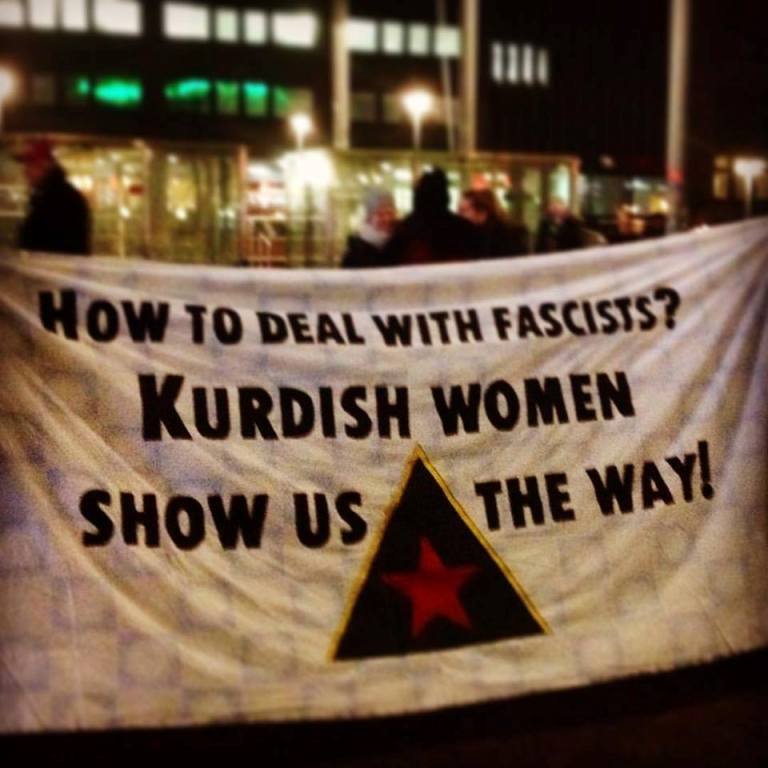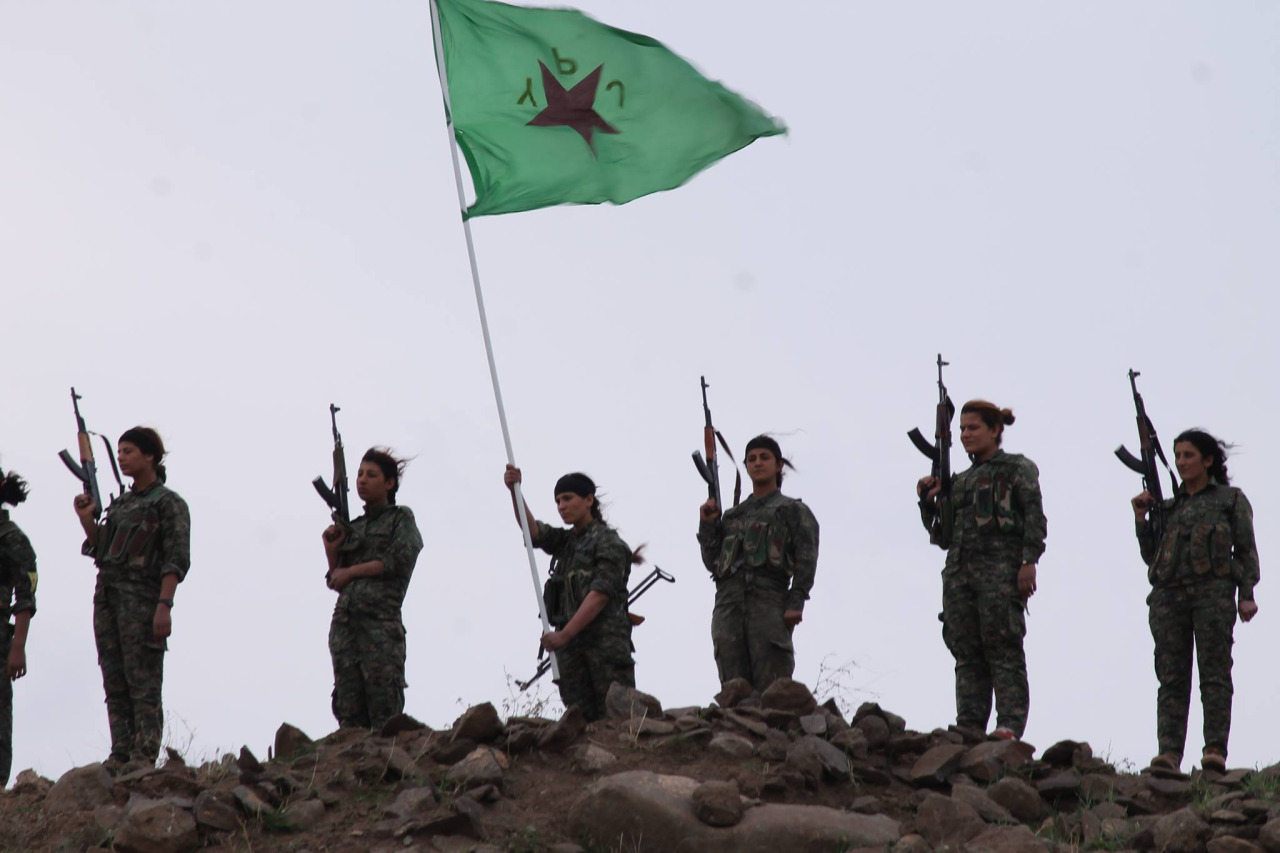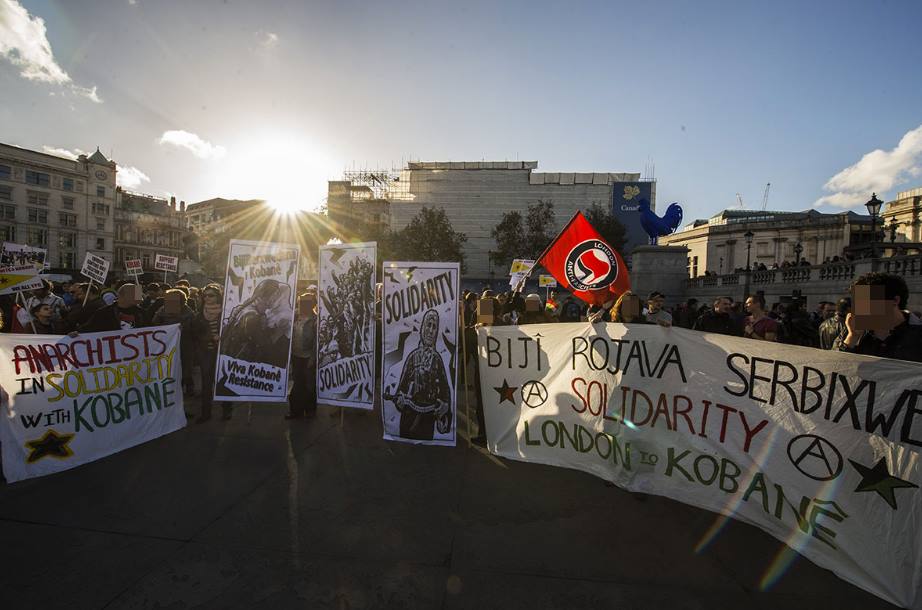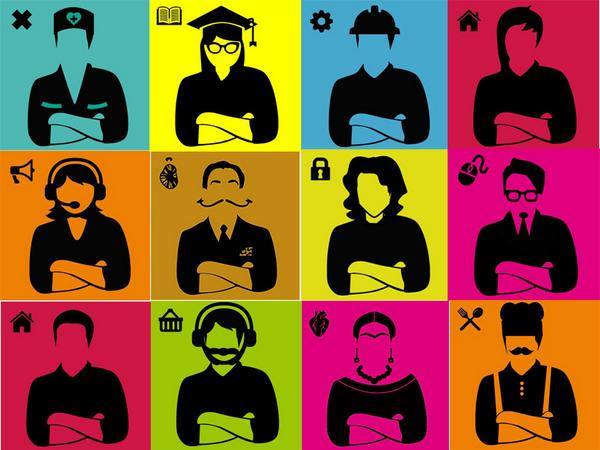We are really happy to publish this interview conducted between Nisrîn Abdullah and two comrades of ours currently working in Rojava. This interview was sent to both ourselves and Leeds Friends of Rojava, who have also sent aid directly to the region. As part of our “3k in 31 Days” fundraising initiative we have provided these comrades with medical equipment for their work in the region. The interview provides an interesting look at the YPG/YPJ and its potential future and the progress of the feminist revolution within Rojava.
“We don’t fight for death… we fight for life.”
An interview with Nisrîn Abdullah, YPJ Commander and spokeswoman
This short interview between YPJ Commander Nisrîn Abdullah and two anarchists from England who are currently living and working in Rojava took place in May 2016. It was conducted through translators, and while we have tried to maintain the original words and meaning as much as possible we have made some changes for clarity and ease of reading. Any mistakes or misunderstandings due to this are the interviewers’ alone.
When first setting up a women’s protection unit was there resistance to this happening, and if so how did the women involved in establishing it overcome that?
To understand the YPJ you have to understand the Kurdish women and our history. In Kurdish history women fighters are not new. We have had 28 revolutions and in all of them women have had important roles, and some of those women have became symbols for the struggle.
For example, there is the story of the Kurdish woman who was captured by an Ottoman general whilst she was fighting with the army against the Ottoman empire. She was beautiful and they wanted to make her a slave or marry her to the general. But once they captured her they took her to a place in Turkey in the north of Kurdistan and on a high bridge she asked to be granted one wish: to kiss the land of her father and grandfather and to say goodbye to her land. When she went to kiss the land she jumped from the bridge to kill herself rather than be enslaved. There are many stories like this in the history of Kurdistan.
Over the last 40 years a lot of women have joined the PKK in the northern and western areas of Kurdistan, and a lot of them have become martyrs. Before the YPJ, there was the YXK which was the unit of the youth of Kurdistan, which included both boys and girls.
The YPJ is not just an army – you have to see it in its wider context. Of course it is a defence force, but it is also a social movement with its ideologies and philosophies. If we didn’t have these ideas we wouldn’t have been able to make the revolution as it is now. That is why we don’t see ourselves as just soldiers.
Having said that, the YPJ have been involved in a lot of battles and conflicts – Kobanê is a well-known example. The battle for Kobanê wasn't just a fight against some terrorists – it was a big statement to the terrorists that whatever you do you will never deny us our place.
The YPJ and YPG also had a big role during the Sinjar conflict. More than 50,000 people were evacuated from Sinjar to Rojava, and this is a clear example of the ideology of the YPG and YPJ. In that time we saw that it was our responsibility to help – but it’s not just our responsibility, it is all of humanity’s responsibility, including women and the feminist movement. That is why we chose to sacrifice a lot to help the people of Sinjar.
The YPJ and YPG have their own rules and beliefs. We have a lot of respect for Abdullah Ocalan’s ideology and philosophy. Ocalan says, “If all the forces of the world come to fight us we will defend ourselves. Yet if we have all forces of the world we will not attack anyone”. It is these beliefs that have kept us on the right path.
Our longer strategy is to change the militaristic mentality. We want to change this mentality because for 5,000 years it has caused conflicts all over the world. This mentality has two aims; to obtain power and to colonise other regions. These are also the reasons that right now we can see in the world a lot of terrorist movements are growing up, one of them is Daesh.

From a demonstration in Finland. Photo by Rojava Puolesta
It’s true that one of our goals is to defend our people and our land, but there are also problems for women that are not to do with fighting or war, but social and psychological problems. One of our goals is not just to organise an army, but also to organise women and the feminist movement in all of Rojava. We see this union between a lot of women in Rojava, between women of all different ethnic groups. So we are focusing a lot on the civil women’s movement not only on the fighters.
That’s why it’s not enough to say the YPG and YPJ are just an army. It’s more than an army – right now it's an international movement, and that’s why we are focusing on ideological training alongside military training, to organise ourselves more and more. So in all of the cantons we have a military academy which is for both military and ideological teaching.
We strongly believe that if you just fight without ideology, without developing your ideas and personality, your fighting will not be as good as it could be, and will not be done in the right ways.
Many formal militaries around the world started as informal militias in times of struggle and revolution, and then over time became structured national armies. Is there any conflict within Rojava and the YPJ/YPG about that? Do some people want a more formal and professional military structure, or do you think everyone wants the militia to stay as it is now?
This will be decided in the future between all the Syrian people. We will see what is the best thing to do about the army and choose that. However, we believe that people will not want a national and formal military. At the moment we have the Syrian Democratic Forces (SDF), within which the YPJ/YPG have many roles and are also the main leaders with this force, this is possibly the best solution for the Syrian army in the long term…
…so possibly a system of federalised militias as well as a federalised country?
Yes, at this time our goal is to achieve federalism in Syria and to choose what each federalist part wants for its own army, but that will be discussed in the future not now. Our important discussions and decisions are not about militias, but are about the philosophies behind these forces. For now the YPJ/YPG are for defending Rojava, and then the SDF for the other areas. And in the future we may have another army for other other things.
And within the militias how do you ensure that the power remains with the people of Rojava? Are there any checks in place in terms of accountability? Who holds the power and how do you ensure that decisions are made in a democratic way?
There are many things that happen to ensure this, and an important element is the system of voluntarism. The YPG/YPJ is a volunteer militia. In this volunteering it is the family that says that they want their daughter or son to be in the YPG; they can choose of course. The families of fighters all accept this army and they approve that their daughter or son wants to join the YPJ/YPG force.
This means that the people built the YPJ/YPG, because they gave their children to build this army. Also our economic sources until now and since the beginning are from the people. So the people believe that these forces are their forces because they built it up themselves. So the relationship between the YPJ/YPG and the people has passed democracy.
For example, my father taught me to be this woman in Kurdistan. Also my brother is a martyr of the YPG. When my brother died in the YPG, all of my family gave their blessing to his martyrdom and they carried his coffin.
The tradition here is usually that when the son dies his father goes to speak for him. But on that day my father said that I was his comrade so I should talk for him. And all the families in Rojava are like this, not only my family. There is a tradition that in each family when there is a martyr or someone dies, the family swear on their blood that they will follow them and the life that they chose.
This is our democracy.
Within the political movements of the Left in Europe one of the things people are uncomfortable with is the working alliance Rojava has with the US and its military. What do you think about this criticism and issue?
Our current goal is to beat Daesh so we join forces only for this. Right now in this fight against Daesh there are more than 60 countries working together. They have not all come together around ideology, but because of the one thing they have in common agreement… fighting Daesh.
We are all dealing in one world, with all of the populations of the countries in this world, and we have one goal which is defending against Daesh. And working together with this goal has not changed our mentality or our ideology.

You’ve talked about this already but I wondered if you had any more to say about civil society and feminism in Rojava? Here I have heard people say it is about ‘more than feminism’, and have heard the terms gender liberation and jineology used. I wondered what the links are with the YPJ and women in civil society and what the challenges are?
One of our goals, not only of the YPJ but also of Kongreya Star, which is the wider feminist movement in Rojava, is to have a union between all of the feminist movements and women’s societies all over the world.
There are a lot of feminist movements in a lot of countries, but until now most of them are made according to their own regimes or own systems in those countries, not as they themselves want. Many are working according to their country’s politics, movements and ideas. That’s why a lot of women’s movements agree with us on many points, but because of these politics in their own countries they are not able to communicate with us as well as possible.
Another problem is that a lot of feminist movements have some differences in the future that they want. And each feminist movement sees women’s rights and beliefs in different ways. These differences between the movements mean that we can’t become a union easily. All the feminist movements believe in the fighting of the YPJ – that women have the right to fight for themselves, but they don’t agree on the best way and the ideological ideas.
But we explain ourselves as much as possible and others are taking more and more of an interest. In a women’s congress in Nepal they knew of us and they spoke about us. One of the results of the conference in Nepal was that they said they would make a seminar about the system here in Rojava all over the world.
We also have to fight to change the man’s military. It’s not easy to get your rights from the man because he already has the power and he will not let you get the power easily. We can see in work, the man gets everything; like president, like culture, like everything about the country, like representation – everything the man takes it for himself. Men have their own society and they will not easily let the women get their rights in this society and world. That’s why we are making two revolutions: one for the women, and one for the man to also be more free.
And are men changing?
A lot of changes have already happened – the YPJ is one example of these changes – but we need a lot of time!
For example during a military campaign or in any battle, when the commander of the group is a woman the men are happy because they believe in women more than in men! And this also happens not only within the YPG/YPJ but also throughout our society. We have a new system, the co-president system where in any organisation there must be two presidents or chairs, one a woman and one a man.
We believe that as women and feminism get stronger, then men will become less dominant. Not because we are against men, but just to have rights and mutualism between people – a better balance between everyone.
Is there anything else that you think we should know, or that you would like our hevals (comrades) in the UK to know about the YPJ or Rojava?
Right now we wish to achieve our goals. And because the women in Rojava and all the Kurdish women are organising themselves we are making progress. She can organise herself in the army, in society, in psychology, everywhere, and this is a good thing for us. We have our faith in ourselves as women, and we have our opinions and beliefs to strengthen our faith.
So we believe in three factors now:
1) We have confidence and we believe in ourselves.
2) We have love for everybody.
3) We don’t fight for death, we fight for life.
We are so clear that we don’;t have anything to hide, and you are living among us so you will see everything with your own eyes.
Thank you to Sherwan for the amazing translation. Bijî Rojava!
Glossary
PKK is the Partiya Karkerên Kurdistanê (Kurdish Workers’ Party) which was founded in 1978, and since 1984 has engaged in armed struggle against the Turkish State.
YPJ and YPG are the Yekîniyên Parastina Jinê (Women’s Protection Units) and Yekîniyên Parastina Gel (People’s Protection Units), the self-defence forces of Rojava.
Note on the PKK and YPJ/G. It is beyond the scope of this article to cover the relationship between these organisations and how connected (or not) they are ideologically, militarily, and structurally. We are aware there are criticisms and concerns among radicals in Europe about this, particularly how much they have reflected and changed their political positions and outlook in more recent times. We hope to find out more and possibly cover it in another article.
YXK stands for Yekitiya Xwendevanen Kurdistan (Students' Union of Kurdistan).
SDF are the Syrian Democratic Forces (also known as QSD) formed in 2015 as an umbrella military command for a number of groups to co-ordinate the fight against Daesh. They are politically allied with the revolutionary ideals of Rojava.
Jineology means “women’s science” – a new understanding of all areas of science and knowledge from the perspectives of women, needed because male dominance in the writing of history and development of the sciences facilitates the continuation of patriarchy.
Kongreya Star is the name for the women’s movement in Rojava. It is made up of women and women’s organisations who organise themselves at local and regional levels, as well as organising as part of the mixed gender political and social structures.
Ideology is a commonly used term here in Rojava, and our understanding is that it is used with a slightly different meaning that it might be in the European political scene. In Rojava it seems to be used to convey a wider more fluid political and personal set of ethics and beliefs rather than a solely and quite rigid political position.
***No copyright, free to reproduce and publish.***



